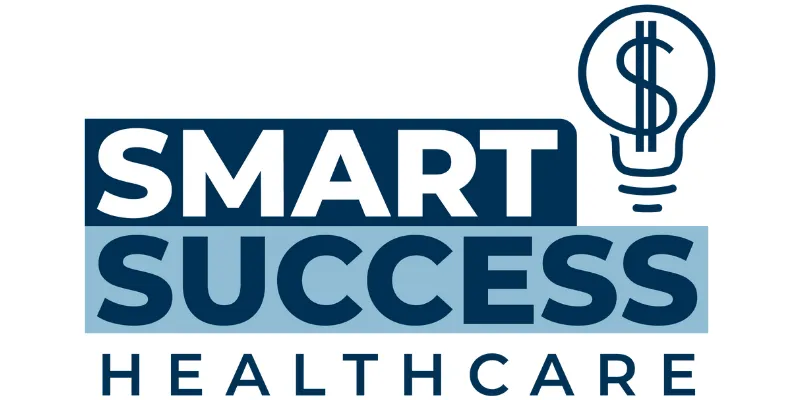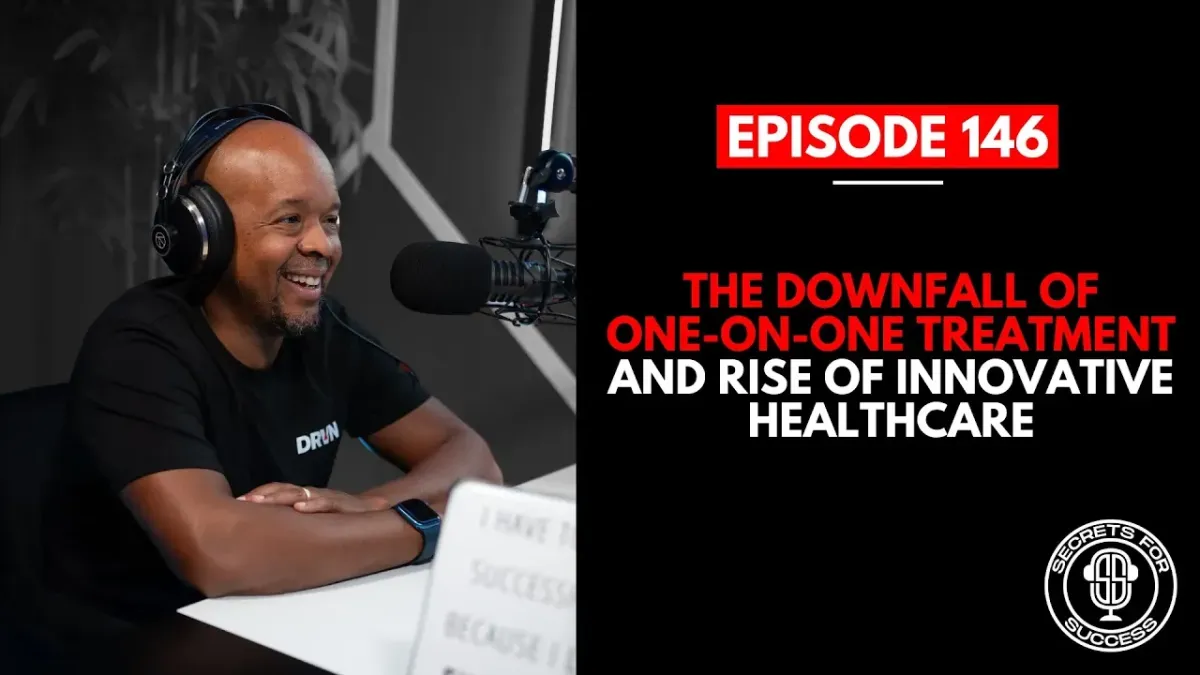
BLOG

The Downfall of One-on-One Treatment and Rise of Innovative Healthcare
The Decline of One-on-One Treatments: Navigating a New Era in Healthcare
The landscape of healthcare, particularly for professionals like physical therapists, occupational therapists, registered dietitians, chiropractors, and nurse practitioners, is undergoing a significant transformation. In a recent episode of the Secrets for Success podcast, Robin, our host, drew a decisive line in the sand, discussing why one-on-one treatments are becoming obsolete and offering insights on thriving in today's evolving market.
The Economic Shift: Middle Class Struggles
Our economy is in flux, and this is inevitably impacting consumer behaviors and decisions. The majority of healthcare clients are middle-class individuals who are feeling the economic squeeze. With the rising costs of food, shelter, and various types of insurance— from health to car insurance— disposable income is dwindling. Consequently, people are seeking ways to stretch their dollars, often opting to reduce the frequency of their sessions or the extent of their treatment packages.
Gone are the days when financial resources were abundant and unquestioned. People are scrutinizing their expenditures, which makes the traditional one-on-one treatment model untenable. It’s not that clients are unwilling to invest in their health, but rather that they are forced to reevaluate and prioritize their spending in the face of economic pressures.
Limitations of One-on-One Treatments
One-on-one treatments, whether cash-based or insurance-based, are proving to be a recipe for disaster because of their inherent limitations. Cash-based services confront the challenge of lowering prices to a point where profitability is compromised. Similarly, insurance-based models, reliant on high volume, face difficulties in maintaining a profit margin.
Professionals are trapped in a cycle of limited service provision, unable to scale their operations or meet increasing financial demands. Unlike growing, which involves more clients and more hours, scaling is about implementing systems that allow professionals to serve more clients without the proportional increase in work hours. Thus, it’s time for healthcare providers to reconsider their service models.
Digital Transformation: A Viable Alternative
Robin points out that much of the value in healthcare lies in education and communication, both of which can be digitized to some extent. Today's technological advancements enable professionals to leverage digital platforms to provide part of their services, such as education and accountability, in innovative ways.
By digitizing educational components of healthcare, providers can offer their insights and guidance in a more scalable manner. Personalized systems can be developed, providing clients with structured guidance and allowing professionals to offer more value without increasing personal interaction time. While not fully customized, these systems deliver decent outcomes, fitting the economic constraints and preferences of today’s clients.
Embracing Productization and New Business Models
One key to thriving in this new era is to productize knowledge and processes. Healthcare providers should consider offering info products, membership-based services, newsletters, or collaborative ventures with other companies to diversify revenue streams and add value to client interactions.
Furthermore, shifting to solutions-focused interactions, rather than session-focused, enables a more sustainable and impactful relationship with clients. These alternative revenue models provide avenues for growing and scaling in the current economic climate.
Taking Action: The Path to Gold Challenge
For those struggling with where to begin, Robin invites listeners to participate in the Path to Gold challenge—a free, five-day initiative to help healthcare professionals transition to new business models. This challenge is designed to guide individuals in setting up a modern, scalable business model and integrating it into their current practice.
Ultimately, adapting to market changes is critical. The end of one-on-one treatments as the primary business model may be near, but with strategic adjustments, healthcare professionals can continue to thrive while meeting the evolving needs of their clients.
Watch Greg Todd's Video on The Downfall of One-on-One Treatment and Rise of Innovative Healthcare
Follow Greg on Socials:
https://www.Instagram.com/gregtoddpt
https://www.Facebook.com/gregtoddpt

The Downfall of One-on-One Treatment and Rise of Innovative Healthcare
The Decline of One-on-One Treatments: Navigating a New Era in Healthcare
The landscape of healthcare, particularly for professionals like physical therapists, occupational therapists, registered dietitians, chiropractors, and nurse practitioners, is undergoing a significant transformation. In a recent episode of the Secrets for Success podcast, Robin, our host, drew a decisive line in the sand, discussing why one-on-one treatments are becoming obsolete and offering insights on thriving in today's evolving market.
The Economic Shift: Middle Class Struggles
Our economy is in flux, and this is inevitably impacting consumer behaviors and decisions. The majority of healthcare clients are middle-class individuals who are feeling the economic squeeze. With the rising costs of food, shelter, and various types of insurance— from health to car insurance— disposable income is dwindling. Consequently, people are seeking ways to stretch their dollars, often opting to reduce the frequency of their sessions or the extent of their treatment packages.
Gone are the days when financial resources were abundant and unquestioned. People are scrutinizing their expenditures, which makes the traditional one-on-one treatment model untenable. It’s not that clients are unwilling to invest in their health, but rather that they are forced to reevaluate and prioritize their spending in the face of economic pressures.
Limitations of One-on-One Treatments
One-on-one treatments, whether cash-based or insurance-based, are proving to be a recipe for disaster because of their inherent limitations. Cash-based services confront the challenge of lowering prices to a point where profitability is compromised. Similarly, insurance-based models, reliant on high volume, face difficulties in maintaining a profit margin.
Professionals are trapped in a cycle of limited service provision, unable to scale their operations or meet increasing financial demands. Unlike growing, which involves more clients and more hours, scaling is about implementing systems that allow professionals to serve more clients without the proportional increase in work hours. Thus, it’s time for healthcare providers to reconsider their service models.
Digital Transformation: A Viable Alternative
Robin points out that much of the value in healthcare lies in education and communication, both of which can be digitized to some extent. Today's technological advancements enable professionals to leverage digital platforms to provide part of their services, such as education and accountability, in innovative ways.
By digitizing educational components of healthcare, providers can offer their insights and guidance in a more scalable manner. Personalized systems can be developed, providing clients with structured guidance and allowing professionals to offer more value without increasing personal interaction time. While not fully customized, these systems deliver decent outcomes, fitting the economic constraints and preferences of today’s clients.
Embracing Productization and New Business Models
One key to thriving in this new era is to productize knowledge and processes. Healthcare providers should consider offering info products, membership-based services, newsletters, or collaborative ventures with other companies to diversify revenue streams and add value to client interactions.
Furthermore, shifting to solutions-focused interactions, rather than session-focused, enables a more sustainable and impactful relationship with clients. These alternative revenue models provide avenues for growing and scaling in the current economic climate.
Taking Action: The Path to Gold Challenge
For those struggling with where to begin, Robin invites listeners to participate in the Path to Gold challenge—a free, five-day initiative to help healthcare professionals transition to new business models. This challenge is designed to guide individuals in setting up a modern, scalable business model and integrating it into their current practice.
Ultimately, adapting to market changes is critical. The end of one-on-one treatments as the primary business model may be near, but with strategic adjustments, healthcare professionals can continue to thrive while meeting the evolving needs of their clients.
Watch Greg Todd's Video on The Downfall of One-on-One Treatment and Rise of Innovative Healthcare
Follow Greg on Socials:
https://www.Instagram.com/gregtoddpt
https://www.Facebook.com/gregtoddpt
Join us on our Social Media
platforms to learn and grow with Smart Success Healthcare
We help Physical Therapists, Occupational Therapists, Dietitians and Chiropractors achieve multi 6 to 7 figures per month with few staff, happy patients and great results!

Text us at 813-534-6453 or
© 2024 Smart Success Healthcare







